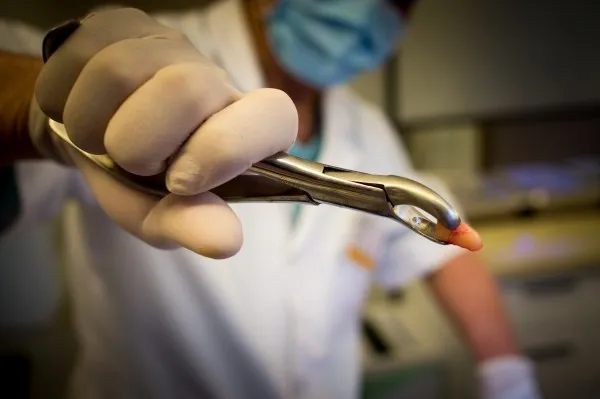What causes Sensitive Teeth?
Sensitive teeth is better understood with the anatomy of the tooth. The anatomy is divided into two portions – root and crown.
The crown portion has enamel on the top that protects the tooth from being sensitive. Because of mechanical pressure from brushing or gastric acid reflux, the tooth enamel wears out, and the second layer is exposed. This exposure of the Dentin (second layer) causes the tooth to become sensitive to cold, heat, or wind.
Cementum is the first layer on the root surface, which helps to anchor the tooth with the bone. The cementum is a skinny layer and usually wears out. With no cementum, the Dentin is exposed again. Hence, the tooth becomes sensitive due to many conditions.
A sensitive tooth is a symptom and not a condition. A tooth can be sensitive as a result of many tooth condition. Mild sensitiveness can be due mild conditions like periodontal disease or mechanical brushing. Whereas severe sensitiveness is a result of severe conditions like dental decay or tooth abscess.
Sensitive Teeth Types
- Gum Disease leading to gum pockets or gum recession and exposing the root surface
- Cracked tooth syndrome
- Deep cavity – new or recurrent decay around existing fillings
- Worn out enamel – Enamel abrasion from teeth grinding or enamel erosion from acids.
Treatment
- Fluoride treatment – toothpaste, gel or varnish
- The desensitizing agent applied on the teeth in the dental office
- Fillings to restore the missing tooth structure to protect the sensitive second layer
- Surgical gum treatment to treat gum recession
- In severe cases, root canal treatment may be necessary to remove the nerve from the tooth.
Sensitiveness can be due to many reasons. Above all, to accurately diagnose the cause for the sensitiveness and treat it, please schedule your next appointment here with Dr. Desai at Healthy Smiles.
